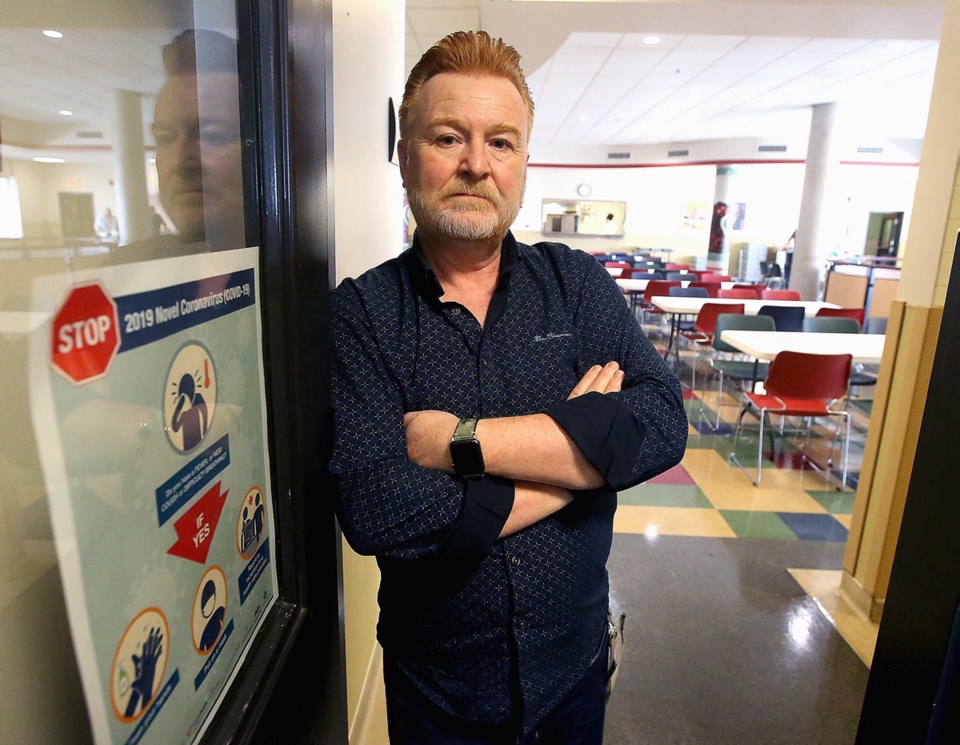People desperate for a meal and a place to sleep are focused on daily survival, not whether they might have contracted the novel coronavirus, says Grant McKenzie of Our Place Society, which runs a drop-in centre for people who are homeless
“They’re really looking at, you know, where’s my next meal coming from, where am I going to sleep tonight,” says McKenzie. “It’s their immediate needs.”
That means they’re less likely to seek health advice, never mind self-isolate if they have concerns about having contracted COVID-19.
McKenzie said it’s up to staff at Our Place, which also operates a 45-bed shelter, to “take that worry on for them.”
“Once the virus enters that population, it could spread quite quickly. ... Because they are already immune-compromised, a lot of people already have breathing problems, lung problems,” he said.
While the centre has no reason to believe the virus is present in its community, it’s monitoring the situation closely, working with Island Health and implementing a pandemic plan that aims to minimize risk of transmission while maintaining life-saving services, McKenzie said.
That includes educating staff and program residents on how to recognize symptoms of COVID-19, and what to do if they believe they have the virus.
The centre has identified four risk levels, he said, adding: “I think if the threat level reaches that level four, you know, if the building has to close, then it’s going to be a real challenge.
“It will be a challenge to isolate people.”
The population will have to depend on the health-care system, which, as the pandemic grows, could already be overwhelmed, said McKenzie.
Another problem for the centre, which is open seven days a week and serves about 700 people each day, is how it will feed people and retain staff if the pandemic worsens, said McKenzie.
“Right now, we don’t even have enough shelter space for healthy people, never mind individual isolation wards for people who are compromised.”
Many volunteers who are elderly and have chronic illnesses are already having to give up their shifts. Staff is filling in and taking on extra duties. Staff and volunteers who are sick are being asked to stay home.
“So we’re all kind of pitching in and all our job descriptions don’t really matter anymore — we’re just pitching in where we need to,” said McKenzie.
The centre’s custodial staff has stepped up its cleaning, disinfecting all doorknobs and handrails, and hand sanitizer has been made available.
“One tricky part is we use alcohol-free hand sanitizer,” which is in high demand and low supply, said McKenzie.
For now, the fear seems to be higher than the threat, “but we have to be prepared,” said McKenzie.
Most of those infected with COVID-19 have contracted it during travel abroad.
Plans to assist people who are homeless, street-entrenched or living in shelters or supportive housing continue to develop, say health officials.
The ��ѻ��ý Centre for Disease Control is working with community-care providers to ensure they have contingency plans, can detect problems and can help inform vulnerable populations of what they need to know.
“We know that many people who are street-involved have other underlying illnesses as well,” said provincial health officer Dr. Bonnie Henry.
��ѻ��ý Health Minister Adrian Dix said the focus on vulnerable populations includes not just the elderly but those with chronic diseases, those with mental-health and addictions issues and people who are homeless.
“We’re focused on all of those communities,” said Dix.



